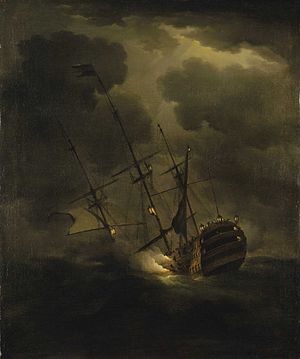Yesterday UNESCO released a statement concerning the announced discovery of the wreck of the HMS Victory by Odyssey Marine:
“I am delighted that such an exceptional example of underwater heritage has been located. The cultural and scientific value of this artefact is considerable,” declared Koïchiro Matsuura, Director-General of UNESCO. “In the spirit of the Convention adopted by UNESCO in 2001, I trust that all parties concerned will take the necessary measures to ensure this important vestige of British naval history is safeguarded and given appropriate attention, not used for commercial gain.”
The statement stands in stark contrast to this week’s earlier interview by the company’s own Greg Stemm. UNESCO and the relevant Underwater Heritage Convention both strongly disapprove of the use of underwater sites for commercial gain. Few of the World’s major nations have signed on to this proposition. The UK Government would seem to believe that scientific study can be accomplished with commercial exploitation, or at least that the commercial value may outweigh a more thorough study.


